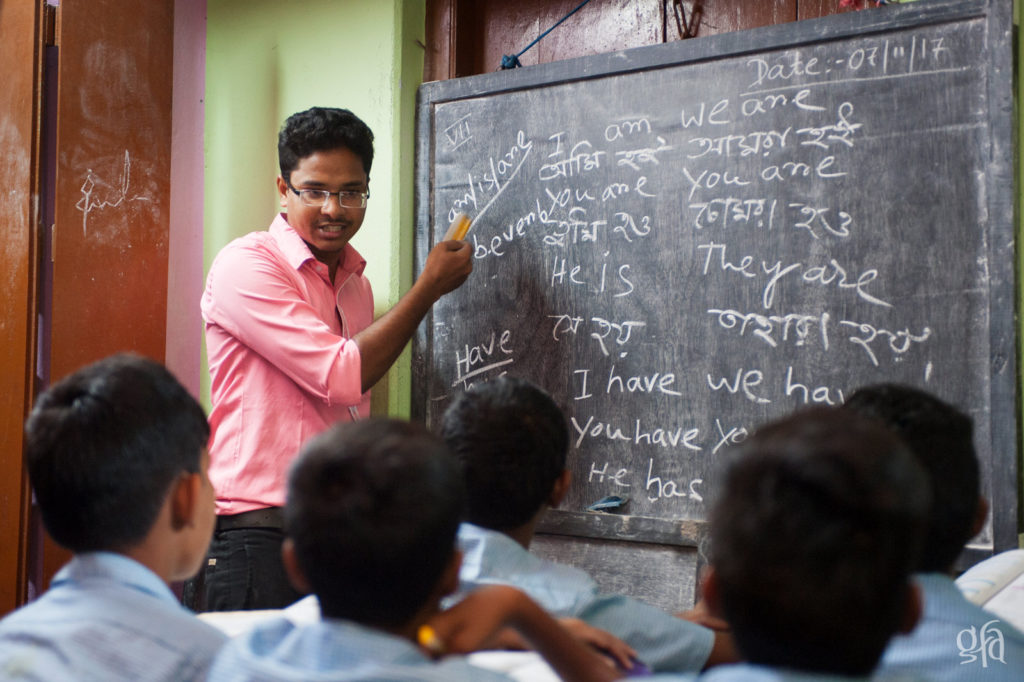PARIS – Just days ago, UNESCO revealed that the world is “off track” in reaching yet another of the 2030 deadlines for sustainable development. With 2020 less than six months away, we are nearly one-third of the way on the timeline to meet those goals. On July 7, UNESCO admitted that the education goal (SDG 4) is not only behind but also that the gap between the objective and reality is widening. A major part of that goal is 100% global literacy. Multitudes of faith-based NGOs, such as Gospel for Asia (GFA) and Forgotten Missionaries International (FMI), work tirelessly to educate children and provide literacy classes for non literate men and women.
Ironically, Westerners tend to see literacy work on the mission field as solely a humanitarian outreach. For organizations like the UN and its affiliates, it is.
The Literacy Foundation lists several consequences not being literate, including:
- Limited ability to obtain and understand essential information
- Lower-quality jobs;
- Lower income
- Unemployment
- Precarious financial position;
- Intergenerational transmission of illiteracy;
- Low self-esteem
- Inability to understand societal issues
However, literacy has important spiritual significance. Think of illiteracy as a bastion of “principalities, against powers . . . the rulers of the darkness of this age . . . [and] spiritual hosts of wickedness in the heavenly places.” (Ephesians 6:12)
The Dark Ages
Have you ever asked yourself what made the Dark Ages dark? To an overwhelming extent, they were dark because of illiteracy. Until Gutenberg began printing Bibles in 1452 (The only book, by the way, that he ever published.), only the very elite owned books and could read them.
As we mentioned in a previous article on literacy, “in the world of the blind, the one-eyed man is king.” In the world of the illiterate, the reader is the leader.”
The Renaissance awakening proved that keeping the masses illiterate had been one of the best ways to sustain control over them. Once common men and women began to read, society saw a seismic shift in progress as well as in power.
Yet, more than 575 years later an embarrassingly large number of people in the world – mainly in developing countries of Africa and Asia – remain illiterate. And, they remain subject to the unspoken agenda of higher powers, just as the masses in the Dark Ages.
A recent story published by Mission Network News pointed out the danger of being illiterate for Christians in countries where illiteracy is high and believers are in the minority and mainly among the poor.
“For example, a frequent charge is that Christians are using pages of the Quran as fuel for their fire. They’re [accused of] lighting up pages of the Quran as kindling under a teapot to get the water to boil. What I find so ironic…the overwhelming majority of Christians in Pakistan are illiterate. They don’t even own books, much less a Quran. They’re not going to have a Quran on hand to rip out pages of it.
”However, sometimes a Muslim neighbor will purposefully give their Christian neighbor a Quran to set them up for a blasphemy charge.”
The purpose of this article is:
- to awaken Western believers to the pressing need to educate the families and individuals we are reaching out to in South Asia.
- to pull back the curtain of humanitarianism to reveal the spiritual need for believers to become literate.
- to raise awareness so that we understand the desperate need to pray for our partners in the field working in the area of literacy.
For more information on the challenge of making the world literate, read the Missions Box articles:
- Gospel for Asia Literacy Program Opens Doors for Asia’s Impoverished Families
- Literacy Will Change Their Worlds.
Sources:
- Mission Network News, Christian teenagers accused of blasphemy, jailed in Pakistan
- The Literacy Foundation, Consequences of illiteracy
- UNESCO, In Focus Literacy Fact Sheet
- UNESCO, New Projections Show the World is Off Track in Meeting its Education Commitments by 2030
- Missions Box News, Literacy Will Change Their Worlds
- Missions Box News, Gospel for Asia Literacy Program Opens Doors for Asia’s Impoverished Families
Image Source:
- Gospel for Asia, Photo of the Day





